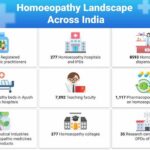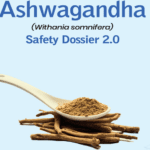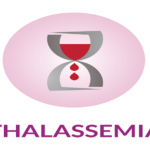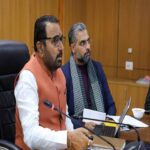New Delhi, December 16, 2022:
The National Health Mission (NHM) envisages achievement of universal access to equitable, affordable & quality health care services that are accountable and responsive to people’s needs. The main programmatic components include Health System Strengthening in rural and urban areas, Reproductive-Maternal- Neonatal-Child and Adolescent Health (RMNCH+A), and Communicable and Non-Communicable Diseases.
Under NHM, technical and financial support is provided to States/UTs for strengthening of their healthcare systems based on the proposals submitted by them in their Program Implementation Plans (PIPs), subject to availability of resources.
National Quality Assurance Standards (NQAS) was launched by Ministry of Health for Primary and Secondary cared public health facilities. As per NQAS guidelines for improving quality in public healthcare facilities all the institutions would undergo internal assessments, State assessment (once in year) and national assessment (once facility get 70% and more in State assessments).
The State/UT wise details of CHC quality assessed since 2020 till 30th November 2022 is as attached at Annexure-I.
‘LaQshya’ is a quality improvement initiative, launched in 2017 by MoHFW which aims to accelerate the efforts toward the reduction of preventable maternal mortality and morbidity by aiming to improve in Quality of Care during the delivery and immediate post-partum period. The initiative specifically focuses on the care around birth provided in the Labour room and Maternity OT. It has been initiated in all government medical college hospitals, district hospitals & equivalent health facilities, all designated FRUs and high case load CHCs.
The MusQan scheme was launched in 2021 to provide high-quality and safe Child-Friendly Services in Public Health Facilities and contribute to preventable new-born child mortality and morbidity. It makes the child-friendly services accessible and available to patients and their parents, as well as provide a child-friendly environment, promote, protect, and support breastfeeding, and provide respectful and dignified care to the mother/parent–attendant.
The Government of India has implemented the following programmes/schemes for ensuring assured, dignified, respectful and quality healthcare services for every pregnant woman.
- Surakshit Matritva Aashwasan (SUMAN) provides assured, dignified, respectful and quality healthcare at no cost and zero tolerance for denial of services for every woman and newborn visiting public health facilities to end all preventable maternal and newborn deaths.
- Janani Suraksha Yojana (JSY), a demand promotion and conditional cash transfer scheme for promoting institutional delivery.
- Under Janani Shishu Suraksha Karyakram (JSSK), every pregnant woman is entitled to free delivery, including caesarean section, in public health institutions along with the provision of free transport, diagnostics, medicines, other consumables & diet
- Pradhan Mantri Surakshit Matritva Abhiyan (PMSMA) provides pregnant women a fixed day, free of cost assured and quality antenatal check up by a Specialist/Medical Officer on the 9th day of every month.
- Monthly Village Health, Sanitation and Nutrition Day (VHSND) is an outreach activity at Anganwadi centers for provision of maternal and child care including nutrition in convergence with the ICDS.
- Delivery Points– Over 25,000 ‘Delivery Points’ across the country have been strengthened in terms of infrastructure, equipment, and trained manpower for provision of comprehensive RMNCAH+N services
- MCP Card and Safe Motherhood Booklet are distributed to the pregnant women for educating them on diet, rest, danger signs of pregnancy, benefit schemes and institutional deliveries.
- Reproductive and child health (RCH) portal is a name-based web-enabled tracking system for pregnant women and new born so as to ensure seamless provision of regular and complete services to them including antenatal care, institutional delivery and post-natal care.
The Union Minister of State for Health and Family Welfare, Dr. Bharati Pravin Pawar stated this in a written reply in the Lok Sabha today.
healthysoch







